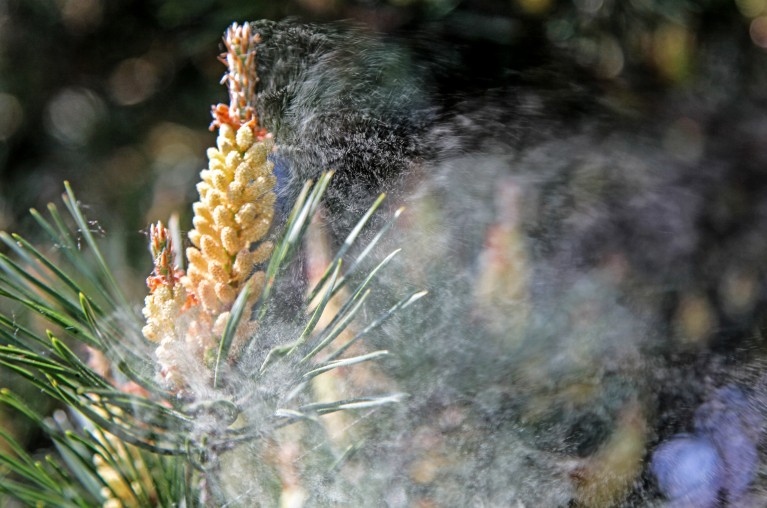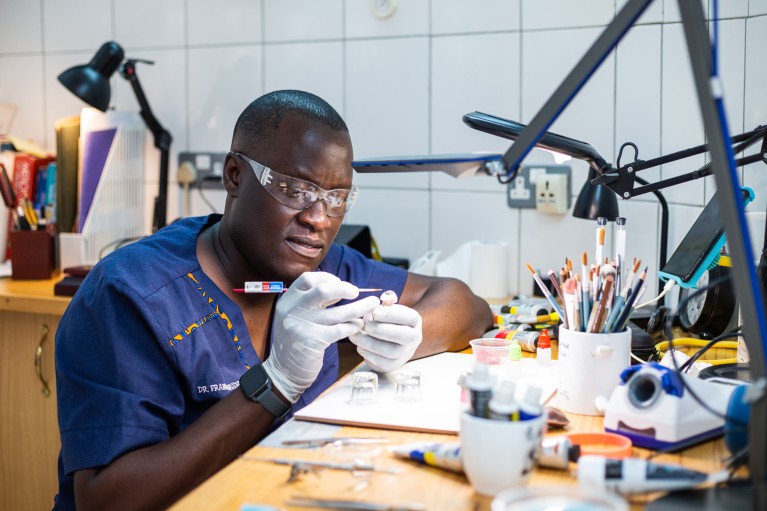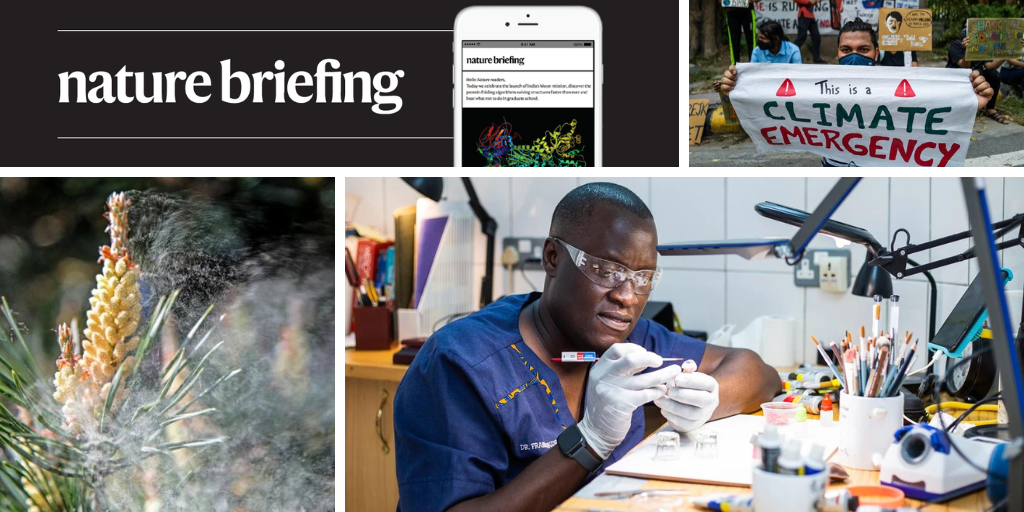Hello Nature readers, would you like to get this Briefing in your inbox free every day? Sign up here.

The cough triggered by pollen and other allergens is activated by neurons distinct from those that lead to a sneeze.Credit: Getty
Scientists have discovered nerve cells in mice that let the brain know whether to cough or sneeze. ‘Sneeze neurons’ in the nose relay the signal to sneeze to the brain and separate neurons send cough messages. The findings could lead to new and improved therapies for conditions such as allergies and chronic coughs. “I’m hopeful that as new therapies enter the market, that’s going to really change our thinking about how to treat [cough] and our enthusiasm for treating it,” says pulmonologist Matthew Drake.
Reference: Cell paper
One of the largest studies of viruses harboured by fur animals in China finds a broad array of potential pathogens — including new ones and known ones found in new hosts. For instance, they found the Japanese encephalitis virus in guinea pigs and norovirus in mink. The study highlights the risks of fur farms becoming a bridge between people and the viruses circulating in wildlife, says virologist Eddie Holmes. “This is how pandemics happen.”
Reference: Nature paper
Scientists agree that human-caused climate change is real. A study across 27 countries suggests that giving that message of consensus to people makes them more likely to agree. And to really nudge people’s thinking, emerging research suggests asking them about their own experiences and connecting them to locally relevant climate information, says climate-communication researcher Matthew Goldberg.
Reference: Nature Human Behaviour paper
Features & opinion
Universities are at a crossroads — embrace artificial intelligence (AI) or risk being left in the dust. Some educators are worried about the increased likelihood of cheating as the software becomes more robust, but others are exploring how AI can prepare students for a technology-driven future. Eventually, AI might represent an opportunity for those who aren’t financially able to pursue higher education. “With AI, they will now have a virtual subject-matter expert by their side,” says computer scientist David Malan.
Read more about how educators are navigating the choppy waters of AI in academia in Nature Career Guide: Faculty.
There is no basis to support a much-cited claim that 80% of the world’s biodiversity is found in the territories of Indigenous Peoples, argues a team of ecologists, policy makers, anthropologists and environmental scientists. The continued use of this number could undermine the credibility of those who advocate for Indigenous Peoples’ crucial role in conservation. “The global conservation community must abandon the 80% claim and instead comprehensively acknowledge the crucial roles of Indigenous Peoples in stewarding their lands and seas — and must do so on the basis of already available evidence,” write the authors.
Researchers at The Centre for Unusual Collaborations in The Netherlands aim to do “something together that we could not do apart” — such as looking at chronic pain through the combined lenses of physical and mental healthcare, linguistics and mechanical engineering. The scientific results seem promising — that group came up with an “unusual” patient questionnaire that revealed previously unknown subtypes of chronic pain, for example. But the most unexpected outcome has been “new curiosity, joy, enthusiasm and a sense of freedom” experienced when the typical academic pressures are put aside, say members. “We call this unexpected reconnection ‘collateral happiness’.”
Humanities And Social Sciences Communications | 23 min read
Where I work

Franklin Wasswa is an ocularist in Entebbe, Uganda.Credit: Kibuuka Mukisa/Candid Local for Nature
Franklin Wasswa is the only ocularist in Uganda, producing customized prosthetic eyes for people who’ve lost theirs to injury or disease. “Matching the colours of the iris and sclera — the white of the eye — with the wearer’s own colouring takes skill, practice and determination,” he says. “But crafting prosthetics is my favourite thing to do.” (Credit: Kibuuka Mukisa/Candid Local for Nature
On Friday, Leif Penguinson was investigating a waterfall in El Cajas National Park in Ecuador. Did you find the penguin? When you’re ready, here’s the answer.
Thanks for reading,
Flora Graham, senior editor, Nature Briefing
With contributions by Jacob Smith and Katharine Sanderson
Want more? Sign up to our other free Nature Briefing newsletters:
• Nature Briefing: Microbiology — the most abundant living entities on our planet — microorganisms — and the role they play in health, the environment and food systems.
• Nature Briefing: Anthropocene — climate change, biodiversity, sustainability and geoengineering
• Nature Briefing: AI & Robotics — 100% written by humans, of course
• Nature Briefing: Cancer — a weekly newsletter written with cancer researchers in mind
• Nature Briefing: Translational Research — covers biotechnology, drug discovery and pharma


